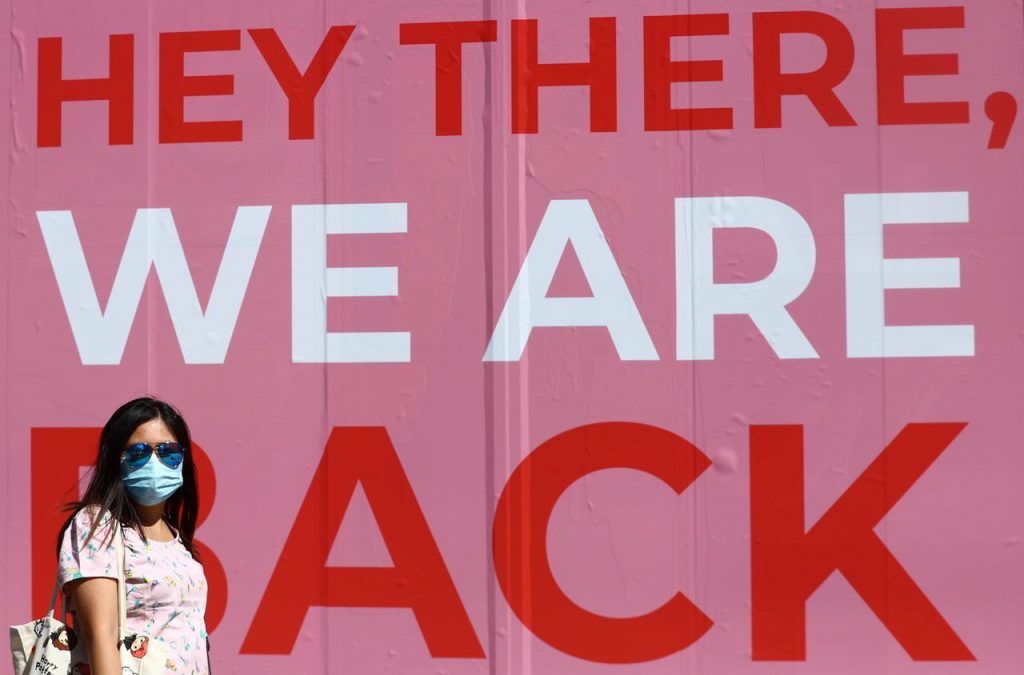After 83 days of coronavirus lockdown, non-essential stores in England reopen their doors on Monday, hoping to get the tills ringing again and start a long road to recovery.
The stores have been closed since March 23 when Prime Minister Boris Johnson imposed a lockdown to stem the spread of the virus. While outdoor markets and car showrooms reopened on June 1, Monday will be the big return to business for retailers.
It only applies to England, with stores in Scotland and Wales waiting for guidance from their devolved administrations on when they can resume trading. Non-essential stores in Northern Ireland reopened on Friday.
Getting shoppers spending again is key to Britain’s recovery after official data on Friday showed the economy shrank by a quarter over March and April.
The British Retail Consortium reckons the lockdown has cost non-food stores 1.8 billion pounds a week in lost revenues.
Stores will look very different from before the lockdown as they will have to observe hygiene and social distancing regulations. Shoppers face queues outside, restricted numbers inside and limitations on trying products.
Some chains are reopening all their English stores, while others are taking a phased approach.
Fashion chain Primark (ABF.L), which with no online offer has not taken a penny in Britain during the lockdown, plans to open all its 153 stores in England.
Marks & Spencer (MKS.L), which has traded online and kept its food halls open, will reopen the majority of its clothing and homewares selling space.
Rival Next (NXT.L) is reopening just 25 stores, while department store chain John Lewis is reopening just two. Electricals retailer Dixons Carphone (DC.L) will open 153 Currys PC World stores.
Researcher Springboard said the number of shoppers in early June indicated “a huge amount” of pent-up demand among consumers for shopping in stores.
However, industry executives are cautious.
“The reopening of the stores is not ‘now COVID-19 is over’ … For a lot of people there’s still some reticence to go out,” said John Bason, finance chief of Primark owner Associated British Foods.


